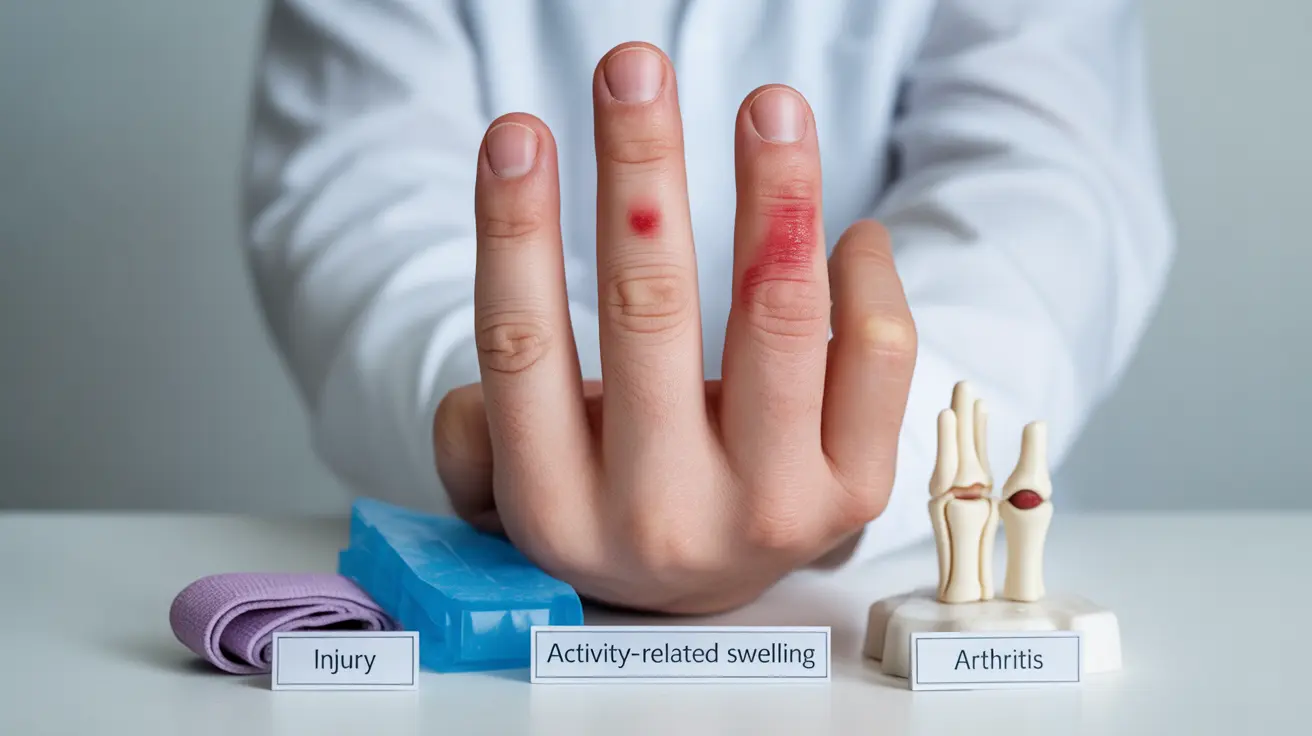Experiencing swollen fingers can be both uncomfortable and concerning. This common condition can arise from various causes, ranging from simple lifestyle factors to underlying medical conditions. Understanding why your fingers are swelling and knowing when to seek medical attention is crucial for proper treatment and peace of mind.
In this comprehensive guide, we'll explore the various causes of finger swelling, discuss effective treatment options, and help you recognize when professional medical care is necessary.
Common Causes of Finger Swelling
Finger swelling can occur due to several factors, each with distinct characteristics and treatment approaches:
Temperature and Activity-Related Swelling
Heat exposure and physical activity often cause temporary finger swelling. This typically occurs during exercise, hot weather, or after long periods of physical exertion. The swelling usually subsides naturally with rest and cooling down.
Injury-Related Swelling
Trauma to the fingers can cause immediate swelling, which may be accompanied by:
- Bruising or discoloration
- Pain or tenderness
- Limited range of motion
- Visible deformity in cases of fractures
Medical Conditions
Several medical conditions can lead to swollen fingers, including:
- Arthritis (both rheumatoid and osteoarthritis)
- Carpal tunnel syndrome
- Lymphedema
- Gout
- Autoimmune disorders
Identifying the Source of Swelling
To determine the cause of your swollen fingers, consider these factors:
- Timing of the swelling
- Accompanying symptoms
- Recent activities or injuries
- Any existing medical conditions
Treatment Options for Swollen Fingers
Home Remedies
Many cases of finger swelling can be managed at home through:
- Elevation of the affected hand
- Application of ice packs
- Gentle exercise and stretching
- Removing rings before swelling worsens
- Reducing salt intake if fluid retention is the cause
Medical Treatments
Professional medical treatments may include:
- Prescription medications for underlying conditions
- Physical therapy
- Anti-inflammatory drugs
- Compression therapy
- Surgery in severe cases
Prevention Strategies
To help prevent or minimize finger swelling:
- Stay hydrated during exercise
- Maintain a healthy weight
- Exercise regularly but moderately
- Protect your hands during activities
- Monitor salt intake
- Wear properly fitting jewelry
Frequently Asked Questions
What are the most common causes of swollen fingers and how can I tell the difference between them?
The most common causes include injury, arthritis, and fluid retention. Injury-related swelling typically occurs suddenly and is accompanied by pain. Arthritis causes chronic swelling with stiffness, while fluid retention often affects both hands and may be worse in the morning or after physical activity.
When should I see a doctor for swollen fingers and what symptoms require urgent medical attention?
Seek immediate medical attention if you experience severe pain, inability to move your fingers, color changes, numbness, or if the swelling occurs after a significant injury. Also consult a doctor if swelling persists for several days or is accompanied by fever or rash.
How can I reduce or prevent swollen fingers caused by fluid retention or heat?
Reduce fluid retention by limiting salt intake, staying hydrated, and exercising regularly. For heat-related swelling, avoid prolonged exposure to hot temperatures, remove rings before activities, and elevate your hands when possible.
What medical conditions commonly cause swollen fingers, and what treatments are available?
Common medical conditions include arthritis, lymphedema, and autoimmune disorders. Treatments vary by condition but may include medications, physical therapy, compression garments, and lifestyle modifications. Your healthcare provider can determine the most appropriate treatment plan.
Can injuries or infections cause finger swelling, and how should they be treated at home or medically?
Yes, injuries and infections commonly cause finger swelling. Minor injuries can be treated at home with RICE (Rest, Ice, Compression, Elevation). Infections require medical attention and may need antibiotics. Any deep cuts, severe pain, or signs of infection should be evaluated by a healthcare professional.




